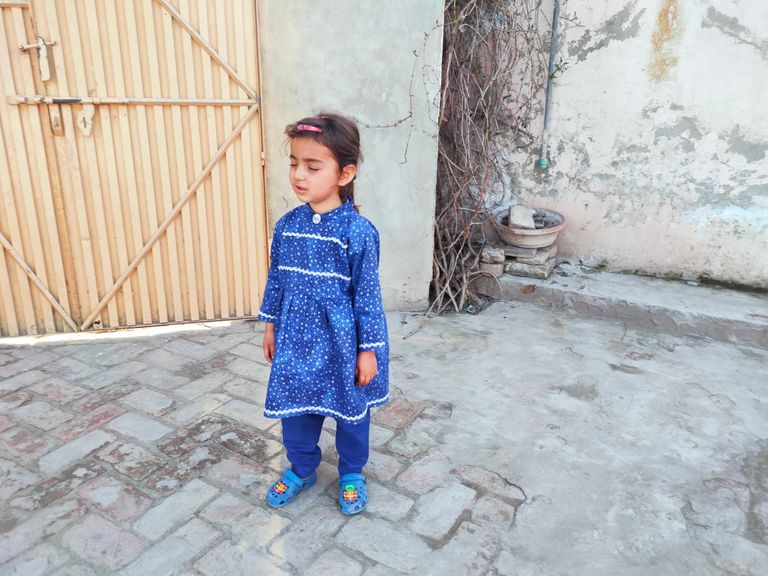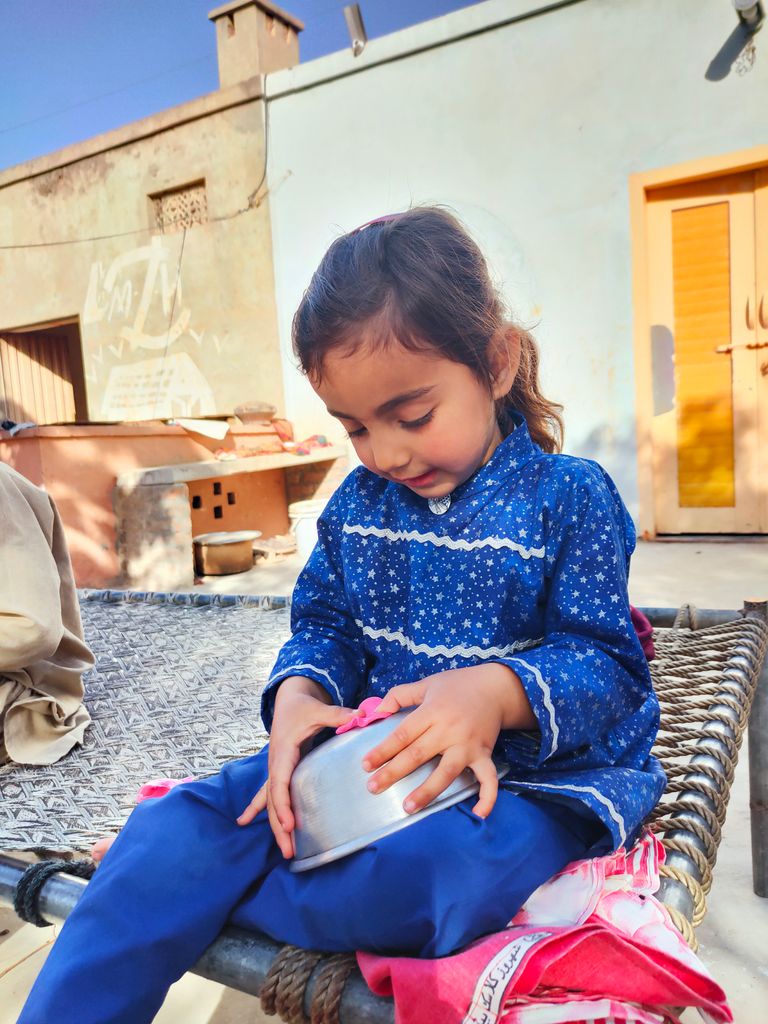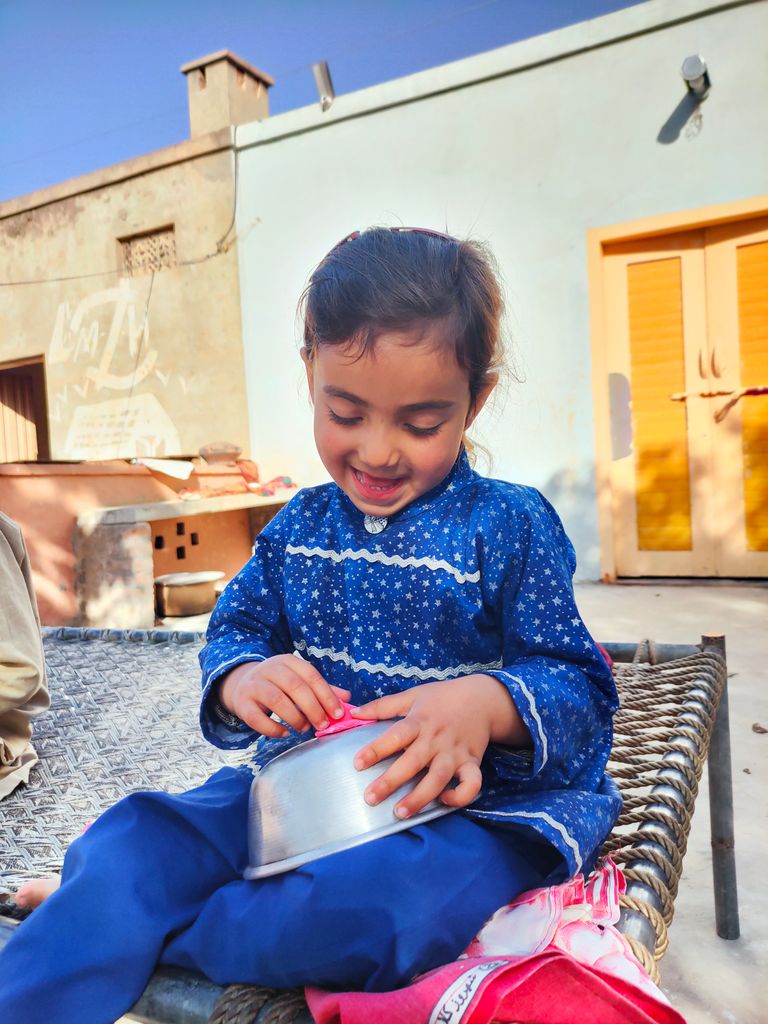asslam-o-alaikum
Article Society and Intolerance
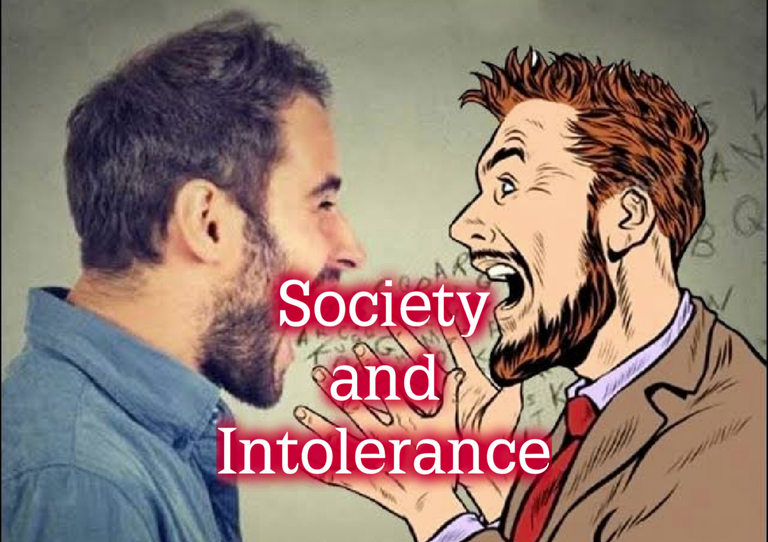

Intolerance is growing at an alarming rate in our society. From homes to the halls of power, there is a severe crisis of tolerance. It has become normal to fight with each other over small things in homes. Families get separated from each other over trivial matters and do not like to see each other for years

Just enough! Now a solution has to be found. It can't go on like this anymore. Intolerance can no longer be tolerated. Yes, tolerating intolerance means we are allowing this disease to flourish. According to Karl Popper's research, in order to maintain its tolerance, any society must end its acceptance of intolerant behavior.When a society begins to accept intolerant behavior, over time that society loses tolerance. For example, if you see a person with a car on the road, who is beating a poor rickshaw puller badly, then you will know that the precious vehicle of this poor person has suffered minor damage due to the negligence of the rickshaw puller.So we will accept the bad behavior of the car owner very comfortably. According to Karl Popper, the philosophy of intolerance must be countered with rational argument. If this is insufficient, force should be used against him.

This is actually the principle behind the rapidly disappearing tolerance in our society. Both the hitter and the hitter are mentally prepared for certain occasions. For example, if the child has not done his homework, he is mentally prepared that the teacher has only to hit him and the teacher also has no other punishment except hitting him.The most painful aspect of this whole situation is that we have mentally accepted this behavior. According to Karl Opp, this acceptance is what actually makes this disease incurable.
The members living in every society have different personalities. Some people are very emotional by nature and it is very difficult for them to control their anger in any situation. Not by mind, but only by mind.When these two attitudes come face-to-face, it is quite possible that a person with negative feelings can destroy the tolerance in a positive thinking person with his negative attitude and as a result, the virus of intolerance spreads like an infectious disease. Others seem to engulf the entire society.

This infectious disease has spread in Pakistani society to such an extent that you will see its symptoms. From the television screen to real-life scenes and from the pages of newspapers to electronic pages, you will be exposed to rude and rude conversations.Hardly a day goes by, when you don't witness such an emotional display during your road trip. Everyone will be busy trying to keep the traffic rules aside and if any other vehicle is touched in this attempt, both people will stop in the middle of the road and start taking out the funeral procession.
Discrimination and intolerance are intertwined concepts that significantly impact our societies. Let’s delve into their meanings:
Discrimination:
Discrimination occurs when people are treated less favorably than others in a comparable situation solely because they belong to a certain group or category. These grounds can include age, disability, ethnicity, origin, political belief, race, religion, sex or gender, sexual orientation, language, culture, and more1.It is a pervasive form of human rights violation, affecting millions of people daily. However, recognizing discrimination can be challenging because it takes various forms and expressions.Imagine a world where everyone is treated fairly, regardless of their background or identity. That’s the goal we strive for.
Intolerance:
Intolerance reflects a lack of respect for practices or beliefs other than one’s own. It involves rejecting people perceived as differentwhether due to social, ethnic, political, or sexual orientation.
Intolerance manifests in actions ranging from avoidance and hate speech to physical harm or even murder.
As a society, we must actively combat intolerance by fostering understanding, empathy, and acceptance.
Remember, a tolerant society is one that acknowledges diversity, respects individual rights, and stands against discrimination and intolerance. Let’s work together to create a world where everyone feels valued and included
Intolerance breeds separation, misunderstanding, and hostility between groups. When groups have no opportunity to settle their disagreements by discussion, they are apt to resort to fighting. Intolerance therefore plays a leading part in fostering civic disorders, and especially in fostering revolution
4 Tips for Building Tolerance for Others
- Tolerance isn’t easy. Because we rely so heavily on our own experiences and worldview, it can be hard to see things from another person’s perspective or accept that someone else’s viewpoint may be equally valid with ours. But tolerance is a skill that can bring greater peace and harmony to our lives and the lives of others. Here are 4 tips for building tolerance for others.
Take Ownership of Your Feelings
- Recognize that no one can make you feel a certain way without your permission. If you’re feeling angry, hurt, or upset, know that you have the power to change your emotions. Move from an attitude of “this person upset me” to “I’m feeling upset because of something this person said or did, but I don’t have to stay that way. I have the power to choose my reactions.”
Develop Curiosity
- In many cases, when we lack tolerance towards others it’s simply because we don’t understand them. By cultivating an open mind, learning about other cultures and people, and broadening our horizons, we increase our ability to understand and accept others.
Change Your Perspective
- Sometimes hurt feelings or a lack of tolerance come about because we can’t see where the other person is coming from. You may not be able to fully understand another person’s experiences, but you can shift your perspective from yourself, (“I can’t believe that person was so rude to me”) to them and how you can relate (“Maybe they’re having a hard time right now. I know I sometimes say things I don’t mean when life is getting me down.”)
Practice Respect
When you don’t agree with another person’s opinion, focus on respecting their right to think for themselves and to believe what they choose. Just as we would never want that right taken away from us, we have a responsibility to extend that same courtesy to other people and treat others with respect, even when we disagree with them.
As you work to develop greater tolerance in your own life, you’ll find that you are happier, more at peace with yourself and those around you, and have a greater appreciation for diversity. Building tolerance for others is a lifelong pursuit that will continue to empower and bring healing—both to you, and to the society in which you live.
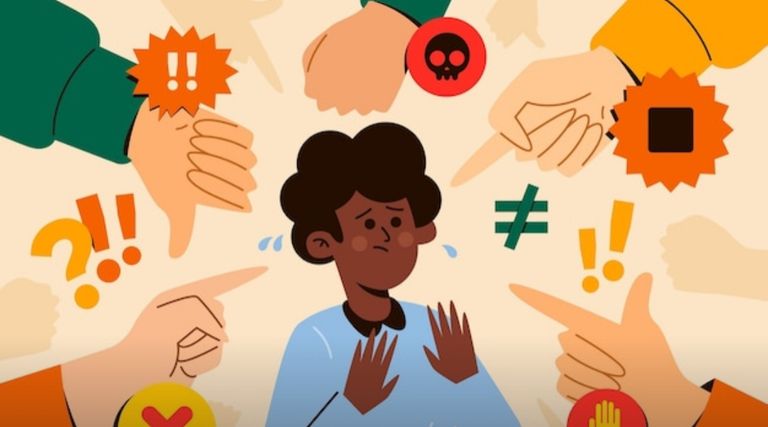
ہمارے معاشرے میں عدم برداشت خطرناک حد تک بڑھ رہی ہے۔ ایوانوں سے لے کر اقتدار کے ایوانوں تک برداشت کا شدید بحران ہے۔ گھروں میں چھوٹی چھوٹی باتوں پر آپس میں لڑنا معمول بن گیا ہے۔ خاندان معمولی باتوں پر ایک دوسرے سے بچھڑ جاتے ہیں اور برسوں ایک دوسرے کو دیکھنا پسند نہیں کرتے

کافی ہے! اب کوئی حل تلاش کرنا ہوگا۔ اب اس طرح نہیں چل سکتا۔ عدم برداشت کو مزید برداشت نہیں کیا جا سکتا۔ ہاں، عدم برداشت کو برداشت کرنے کا مطلب ہے کہ ہم اس بیماری کو پنپنے دے رہے ہیں۔ کارل پوپر کی تحقیق کے مطابق اپنی رواداری کو برقرار رکھنے کے لیے کسی بھی معاشرے کو عدم برداشت کے رویے کو قبول کرنا ختم کرنا ہوگا۔
جب کوئی معاشرہ عدم برداشت کے رویے کو قبول کرنے لگتا ہے تو وقت گزرنے کے ساتھ ساتھ وہ معاشرہ برداشت کھو دیتا ہے۔ مثال کے طور پر اگر آپ سڑک پر ایک گاڑی والے شخص کو دیکھیں جو ایک غریب رکشہ والے کو بری طرح پیٹ رہا ہے تو آپ کو معلوم ہوگا کہ اس غریب شخص کی قیمتی گاڑی کو رکشہ والے کی لاپرواہی کی وجہ سے معمولی نقصان پہنچا ہے۔
تو ہم کار کے مالک کے برے رویے کو بہت آرام سے قبول کریں گے۔ کارل پوپر کے مطابق عدم برداشت کے فلسفے کا مقابلہ عقلی دلیل سے کیا جانا چاہیے۔ اگر یہ ناکافی ہے تو اس کے خلاف طاقت کا استعمال کیا جائے۔

ہمارے معاشرے میں تیزی سے ختم ہونے والی برداشت کے پیچھے دراصل یہی اصول ہے۔ مارنے والا اور مارنے والا دونوں مخصوص مواقع کے لیے ذہنی طور پر تیار ہوتے ہیں۔ مثال کے طور پر اگر بچے نے اپنا ہوم ورک نہیں کیا ہے تو وہ ذہنی طور پر تیار ہے کہ ٹیچر نے صرف اسے مارنا ہے اور ٹیچر کے پاس بھی مارنے کے علاوہ کوئی اور سزا نہیں ہے۔
اس ساری صورتحال کا سب سے تکلیف دہ پہلو یہ ہے کہ ہم نے اس رویے کو ذہنی طور پر قبول کر لیا ہے۔ کارل اوپ کے مطابق، یہ قبولیت دراصل اس بیماری کو لاعلاج بناتی ہے۔
ہر معاشرے میں رہنے والے افراد کی شخصیت مختلف ہوتی ہے۔ کچھ لوگ فطرتاً بہت جذباتی ہوتے ہیں اور ان کے لیے کسی بھی حالت میں اپنے غصے پر قابو پانا بہت مشکل ہوتا ہے۔ دماغ سے نہیں، صرف دماغ سے۔
جب یہ دونوں رویے آمنے سامنے ہوتے ہیں تو یہ بہت ممکن ہے کہ منفی جذبات رکھنے والا شخص اپنے منفی رویے سے مثبت سوچ رکھنے والے میں برداشت ختم کر دے اور اس کے نتیجے میں عدم برداشت کا وائرس ایک وبائی مرض کی طرح پھیل جائے۔ دوسرے پورے معاشرے کو اپنی لپیٹ میں لیتے نظر آتے ہیں۔

یہ وبائی بیماری پاکستانی معاشرے میں اس حد تک پھیل چکی ہے کہ آپ کو اس کی علامات نظر آئیں گی۔ ٹیلی ویژن کی سکرین سے لے کر حقیقی زندگی کے مناظر تک اور اخبارات کے صفحات سے لے کر الیکٹرانک صفحات تک آپ کو بے ہودہ اور بدتمیز گفتگو کا سامنا کرنا پڑے گا۔
شاید ہی کوئی دن ایسا گزرتا ہو، جب آپ اپنے روڈ ٹرپ کے دوران ایسا جذباتی مظاہرہ نہ دیکھیں۔ ہر کوئی ٹریفک قوانین کو ایک طرف رکھنے کی کوشش میں مصروف ہو گا اور اگر اس کوشش میں کسی اور گاڑی کو ہاتھ لگ گیا تو دونوں لوگ سڑک کے بیچوں بیچ روک کر جنازہ نکالنا شروع کر دیں گے۔
امتیازی سلوک اور عدم برداشت ایک دوسرے سے جڑے ہوئے تصورات ہیں جو ہمارے معاشروں کو نمایاں طور پر متاثر کرتے ہیں۔ آئیے ان کے معانی کا جائزہ لیتے ہیں:
امتیازی سلوک:
امتیازی سلوک اس وقت ہوتا ہے جب لوگوں کے ساتھ موازنہ کی صورت حال میں دوسروں کے مقابلے میں کم مناسب سلوک کیا جاتا ہے صرف اس وجہ سے کہ وہ کسی خاص گروہ یا زمرے سے تعلق رکھتے ہیں۔ ان بنیادوں میں عمر، معذوری، نسل، اصل، سیاسی عقیدہ، نسل، مذہب، جنس یا جنس، جنسی رجحان، زبان، ثقافت، اور بہت کچھ شامل ہو سکتا ہے۔
یہ انسانی حقوق کی خلاف ورزی کی ایک وسیع شکل ہے جس سے روزانہ لاکھوں لوگ متاثر ہوتے ہیں۔ تاہم، امتیازی سلوک کو پہچاننا مشکل ہو سکتا ہے کیونکہ یہ مختلف شکلیں اور تاثرات لیتا ہے۔
ایک ایسی دنیا کا تصور کریں جہاں ہر ایک کے ساتھ منصفانہ سلوک کیا جاتا ہے، چاہے اس کا پس منظر یا شناخت کچھ بھی ہو۔ یہ وہ مقصد ہے جس کے لیے ہم کوشش کر رہے ہیں۔
عدم برداشت:
عدم برداشت اپنی ذات کے علاوہ دیگر طریقوں یا عقائد کے احترام کی کمی کو ظاہر کرتی ہے۔ اس میں ان لوگوں کو مسترد کرنا شامل ہے جنہیں مختلف سمجھا جاتا ہے- خواہ وہ سماجی، نسلی، سیاسی، یا جنسی رجحان کی وجہ سے ہوں۔
عدم برداشت ان کاموں سے ظاہر ہوتی ہے جن میں اجتناب اور نفرت انگیز تقریر سے لے کر جسمانی نقصان یا قتل تک ہوتا ہے۔
ایک معاشرے کے طور پر، ہمیں افہام و تفہیم، ہمدردی اور قبولیت کو فروغ دے کر عدم برداشت کا فعال طور پر مقابلہ کرنا چاہیے۔
یاد رکھیں، ایک روادار معاشرہ وہ ہے جو تنوع کو تسلیم کرتا ہے، انفرادی حقوق کا احترام کرتا ہے، اور امتیازی سلوک اور عدم برداشت کے خلاف کھڑا ہوتا ہے۔ آئیے ایک ایسی دنیا بنانے کے لیے مل کر کام کریں جہاں ہر کوئی قابل قدر اور شامل ہو۔
عدم برداشت گروپوں کے درمیان علیحدگی، غلط فہمی اور دشمنی کو جنم دیتی ہے۔ جب گروہوں کو بات چیت کے ذریعے اپنے اختلافات کو طے کرنے کا موقع نہیں ملتا ہے، تو وہ لڑائی کا سہارا لینے کے قابل ہوتے ہیں۔ لہٰذا عدم رواداری شہری عوارض کو فروغ دینے اور خاص طور پر انقلاب کو فروغ دینے میں اہم کردار ادا کرتی ہے۔
دوسروں کے لیے رواداری پیدا کرنے کے لیے 4 نکات

رواداری آسان نہیں ہے۔ چونکہ ہم اپنے تجربات اور عالمی نظریہ پر بہت زیادہ انحصار کرتے ہیں، اس لیے چیزوں کو کسی دوسرے شخص کے نقطہ نظر سے دیکھنا یا یہ قبول کرنا مشکل ہو سکتا ہے کہ کسی اور کا نقطہ نظر ہمارے ساتھ اتنا ہی درست ہو سکتا ہے۔ لیکن رواداری ایک ایسا ہنر ہے جو ہماری زندگیوں اور دوسروں کی زندگیوں میں زیادہ سے زیادہ امن اور ہم آہنگی لا سکتا ہے۔ دوسروں کے لیے رواداری پیدا کرنے کے لیے یہاں 4 نکات ہیں۔
اپنے جذبات کی ملکیت لیں۔


تسلیم کریں کہ آپ کی اجازت کے بغیر کوئی بھی آپ کو کسی خاص طریقے سے محسوس نہیں کر سکتا۔ اگر آپ کو غصہ، تکلیف، یا پریشان محسوس ہو رہا ہے تو جان لیں کہ آپ کے پاس اپنے جذبات کو تبدیل کرنے کی طاقت ہے۔ "اس شخص نے مجھے پریشان کیا" کے رویے سے "میں اس شخص کے کہے یا کیے جانے کی وجہ سے پریشان محسوس کر رہا ہوں، لیکن مجھے اس طرح رہنے کی ضرورت نہیں ہے۔ میرے پاس اپنے ردعمل کا انتخاب کرنے کا اختیار ہے۔
تجسس پیدا کریں۔
بہت سے معاملات میں، جب ہم دوسروں کے لیے رواداری کا فقدان رکھتے ہیں تو یہ صرف اس لیے ہوتا ہے کہ ہم انہیں نہیں سمجھتے۔ کھلے ذہن کو پروان چڑھانے، دوسری ثقافتوں اور لوگوں کے بارے میں سیکھنے اور اپنے افق کو وسیع کرنے سے، ہم دوسروں کو سمجھنے اور قبول کرنے کی اپنی صلاحیت کو بڑھاتے ہیں۔
اپنا نقطہ نظر تبدیل کریں۔


بعض اوقات مجروح جذبات یا برداشت کی کمی اس لیے ہوتی ہے کیونکہ ہم یہ نہیں دیکھ سکتے کہ دوسرا شخص کہاں سے آ رہا ہے۔ ہو سکتا ہے کہ آپ کسی دوسرے شخص کے تجربات کو پوری طرح سے نہ سمجھ سکیں، لیکن آپ اپنا نقطہ نظر خود سے بدل سکتے ہیں، ("میں یقین نہیں کر سکتا کہ وہ شخص میرے ساتھ اتنا بدتمیز تھا") اور آپ ان سے کیسے تعلق رکھ سکتے ہیں ("شاید وہ اس وقت مشکل وقت گزر رہا ہے۔ میں جانتا ہوں کہ میں کبھی کبھی ایسی باتیں کہتا ہوں جس کا مطلب یہ نہیں ہوتا کہ جب زندگی مجھے گرا رہی ہے۔")
احترام کی مشق کریں۔
جب آپ کسی دوسرے شخص کی رائے سے اتفاق نہیں کرتے ہیں، تو اپنے بارے میں سوچنے اور ان کے انتخاب پر یقین کرنے کے حق کا احترام کرنے پر توجہ دیں۔ جس طرح ہم کبھی نہیں چاہیں گے کہ یہ حق ہم سے چھین لیا جائے، اسی طرح ہماری ذمہ داری ہے کہ ہم دوسرے لوگوں کے ساتھ اسی شائستگی کا اظہار کریں اور دوسروں کے ساتھ احترام کے ساتھ پیش آئیں، چاہے ہم ان سے متفق نہ ہوں۔
جب آپ اپنی زندگی میں زیادہ رواداری پیدا کرنے کے لیے کام کرتے ہیں، تو آپ محسوس کریں گے کہ آپ زیادہ خوش ہیں، اپنے آپ اور اپنے اردگرد کے لوگوں کے ساتھ زیادہ پر سکون ہیں، اور تنوع کے لیے آپ کی زیادہ تعریف ہے۔ دوسروں کے لیے رواداری پیدا کرنا ایک زندگی بھر کا حصول ہے جو بااختیار بناتا رہے گا اور شفا بخشتا رہے گا — آپ دونوں کے لیے، اور اس معاشرے کے لیے جس میں آپ رہتے ہیں۔
